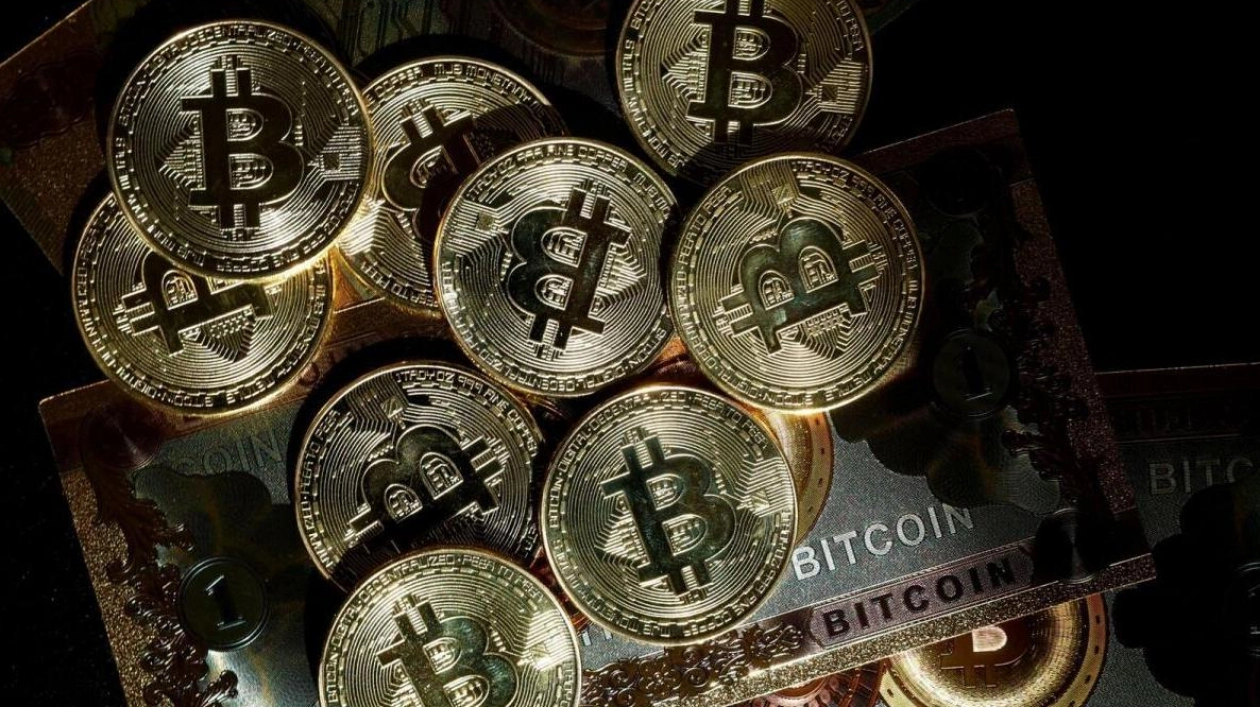Bitcoin's meteoric rise has recently garnered global attention, with numerous analysts forecasting further price hikes. On Tuesday, the premier cryptocurrency surged to a fresh all-time high of $89,982 and was last seen at $87,330, as reported by Reuters. However, a substantial barrier looms ahead: the $90,000 to $100,000 price bracket. Market makers, the financial institutions that facilitate trading by offering liquidity, could play a pivotal role in curbing Bitcoin's upward trajectory within this range.
Market makers are indispensable to the operation of financial markets. They buy and sell securities to ensure liquidity, facilitating smooth trading and price discovery. To mitigate risk, market makers frequently employ hedging tactics. One such tactic involves selling options contracts, which grant the buyer the right to purchase or sell an asset at a predetermined price on a specific date. In the case of Bitcoin, market makers have sold a substantial number of call options at the $90,000 and $100,000 strike prices. "These options confer the buyer the right to acquire Bitcoin at these prices, irrespective of the market price. If Bitcoin's price surpasses these thresholds, the market makers will be obliged to sell Bitcoin to fulfill their option contracts," explained Mohamed Hashad, Chief Market Strategist at Noor Capital.
Markets have been buoyed by investors' anticipation of business-friendly policies under a second Trump administration, encompassing tax cuts, lighter regulation, and reduced enforcement of certain securities laws targeting cryptocurrencies. To a certain extent, asset prices tend to rise post-major events like the presidential election, passing without disruption. However, the surge in prices—including crypto, stocks, and currencies—has been widespread across sectors known as the "Trump trade." Some investors express concern over the potential for inflation to re-emerge if the incoming administration's campaign promises materialize, potentially escalating interest rates and government borrowing costs.
Bitcoin, in particular, has experienced a surge over the past week. Mere weeks before the election, Trump endorsed a crypto venture, World Liberty Financial, in which several members of the Trump family hold roles. The industry injected millions into the election, with prominent crypto executives, including Tyler and Cameron Winklevoss, founders of the Gemini crypto exchange, contributing substantial sums to support Trump. A coalition of super PACs also amassed well over $100 million to elect pro-crypto congressional candidates.
Some investors caution that markets may be overestimating the situation, as Trump has divulged scant concrete details about his actual plans once in office. To hedge against these options, market makers may need to sell Bitcoin in the spot market, thereby exerting downward pressure on the price, analysts suggest. "This selling pressure could counteract the buying pressure from bullish investors, constraining Bitcoin's upside potential. The extent to which market makers can influence Bitcoin's price hinges on several factors, including the size of their positions, overall market sentiment, and the level of institutional involvement. However, their potential impact cannot be disregarded, particularly as Bitcoin nears the pivotal $90,000 to $100,000 range," Hashad noted.
Bitcoin's future price trajectory remains uncertain, but the potential influence of market maker hedging on its path cannot be understated. As Bitcoin approaches the $90,000 to $100,000 range, investors should closely observe market dynamics and prepare for potential price volatility, analysts advise. While bullish sentiment surrounding Bitcoin remains robust, it is crucial to consider the potential headwinds that could limit its upward potential. "By comprehending the role of market makers and other pertinent factors, investors can make informed decisions and navigate the intricate and dynamic cryptocurrency market," Hashad concluded.
Bitcoin has surged approximately 32% since the US election on November 5. "Trump has pledged friendlier crypto regulations, marking a stark contrast to the crackdown on the contentious industry by the Securities & Exchange Commission under President Joe Biden's administration. This shift has invigorated speculative buying across large and small tokens alike, elevating the value of digital assets to about $3.1 trillion, according to CoinGecko data. In the options market, investors are placing bets that Bitcoin will surpass $100,000 by the year's end, as evidenced by data from the Deribit exchange. Meanwhile, software firm MicroStrategy Inc., the largest publicly-traded corporate holder of Bitcoin outside the exchange-traded fund sector, acquired about 27,200 Bitcoin for roughly $2 billion between October 31 and November 10," disclosed Vijay Valecha, Chief Investment Officer at Century Financial.
Source link: https://www.khaleejtimes.com






